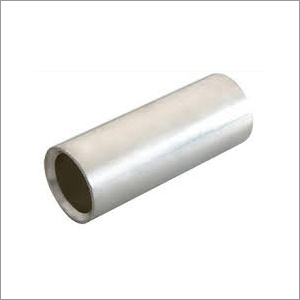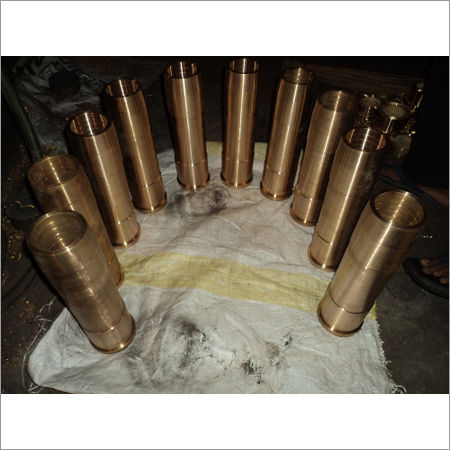Industrial Aluminium Bushes
Product Details:
- Weight 300 Grams (g)
- Usage Industrial
- Product Type Aluminium Bushes
- Color Sliver
- Length 6 Inch (in)
- Material Aluminum
- Finish Polished
- Click to View more
Industrial Aluminium Bushes Price And Quantity
- 50 Kilograms
- 900 INR/Kilograms
Industrial Aluminium Bushes Product Specifications
- 6 Inch (in)
- Polished
- 300 Grams (g)
- Industrial
- Aluminium Bushes
- Aluminum
- Sliver
Industrial Aluminium Bushes Trade Information
- 1000 Kilograms Per Month
- 7 Days
- All India
Product Description
Aluminium or its alloys, which are generally used to make aluminium bushes, have the following advantageous qualities in industrial settings:
1. Aluminium is useful for situations where weight reduction is required because it is a lightweight material. Its low density makes it easier to handle and more efficient.
2. Aluminium has a built-in resistance to corrosion because of the development of a shielding oxide layer on its surface. Because of this, aluminium bushes can be used in areas where moisture or corrosive substances are present.
3. High thermal conductivity: Aluminium dissipates heat well thanks to its great thermal conductivity. Applications where heat transport is an issue, such cooling systems, benefit from this characteristic.
4. Low coefficient of friction: Aluminium bushes frequently have low coefficients of friction, which minimises energy waste and permits fluid movement between mating surfaces.
5. Aluminium alloys are known for being machinable, which makes it simpler to produce complex shapes and exact measurements for unique industrial uses.
Numerous industries, including the automotive, aerospace, marine, equipment, and more, use industrial aluminium bushes. They are frequently employed in parts that require low friction and light weight, such as bearings, bushings, shafts, and pivot points.
Industrial bushes' specific aluminium alloy relies on things like the needed strength, corrosion resistance, operating temperature, and load capacity. Aluminium bronze alloys like C95400 or C95500, which offer more strength and wear resistance than pure aluminium, are common aluminium alloys used for bushes.
Industrial aluminium bushes should be designed, lubricated, and maintained according to best practises to get the most performance and longevity from them in the applications that they are used in.
FAQ
1. What exactly is a commercial aluminium bush?
Ans - A flat, cylindrical piece of aluminium designed for production and fabrication processes is called an industrial aluminium bush. Industrial machinery typically employ this bush to provide a tight fit between two components.
2. What advantages can commercial aluminium bushes offer?
Ans - Industrial aluminium bushes can tolerate extreme pressure and temperature conditions and are quite durable. They are also corrosion-resistant and lightweight, which makes them suitable for use in industrial applications that aren't related to transportation.
3. How is an industrial aluminium bush installed?
Ans - An industrial aluminium bush may be installed in a few easy steps. Make sure the shaft's wall thickness can support the bushing first. Next, use nuts and bolts to tighten the bush into position on the shaft's end. To keep the nuts and bolts in place, it is best to use a threadlocking compound.
4. What distinguishes an industrial aluminium bush from a standard aluminium bush?
Ans - A basic aluminium bush is normally weaker and available in conventional sizes for lighter machine and household projects, whereas an industrial aluminium bush is specifically made for heavy-duty production and fabrication applications. Additionally, industrial aluminium bushes are more corrosion resistant than plain aluminium bushes.
5. Can I use industrial aluminium bushes in areas with a lot of vibration?
Ans - Industrial aluminium bushes are made to withstand high levels of vibration. Make sure the shaft is robust enough to support the bush before installing it. A rigid shaft is necessary to absorb vibrations and muffle noise.

Price:
- 50
- 100
- 200
- 250
- 500
- 1000+



 Send Inquiry
Send Inquiry Send SMS
Send SMS Call Me Free
Call Me Free
